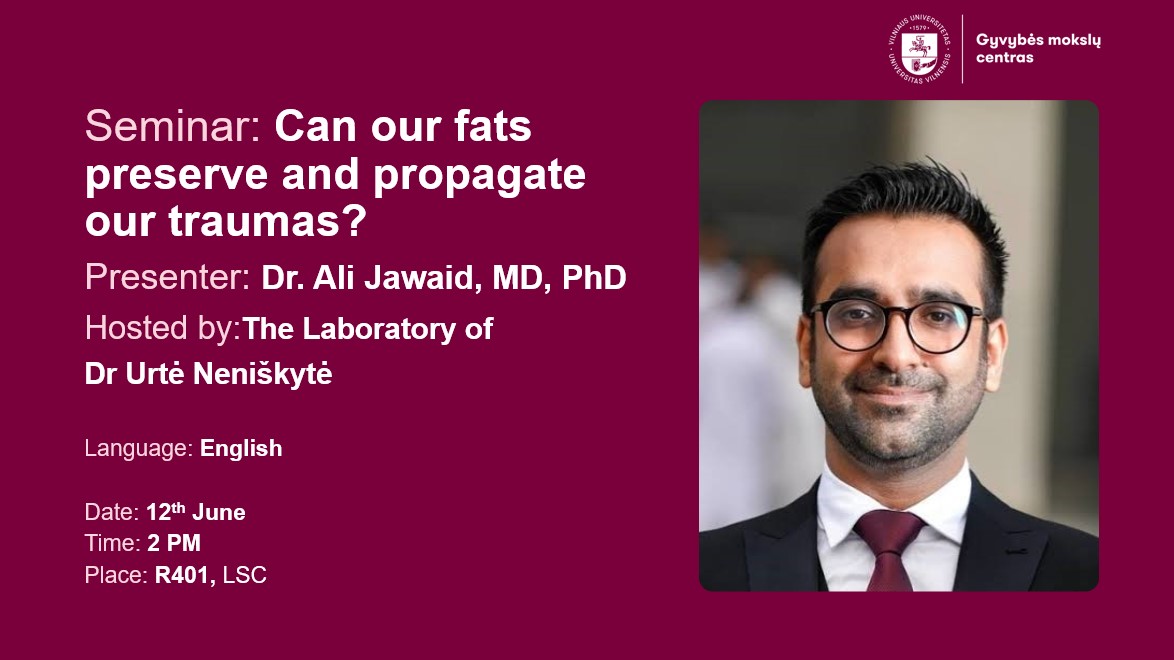 Renginio vieta: R401, VU GMC, Saulėtekio al. 7, Vilnius
Renginio vieta: R401, VU GMC, Saulėtekio al. 7, Vilnius
Trumpai apie pranešimą ir pranešėją anglų k.:
Abstract
Traumatic experiences, especially during childhood, constitute a major risk factor for neuropsychiatric and metabolic disorders later in life. Emerging evidence suggests that the effects of childhood traumatic experiences are transmissible across generations. However, the signalling pathways implicated in the long-term effects and intergenerational transmission of childhood trauma have, thus far, remained elusive. Employing synergistic investigations in human trauma cohorts from three different countries, ethologically relevant animal models, and innovative cellular approaches- Jawaid lab has identified a key role for lipid metabolism in the long-term sequelae and intergenerational transmission of the effects of childhood trauma. This conference will encompass the remarkable body of biomedical research led by Jawaid et al. on the metabolic basis of neuropsychiatric disorders over the last 10 years.
Speaker Biosketch
Dr. Ali Jawaid is a physician-scientist with training in both clinical and basic neuroscience. He completed his medical studies from Aga Khan University, Karachi, Pakistan, and followed it up with a fellowship in Neuropsychiatry from Baylor College of Medicine, Houston, TX, USA. He then proceeded to complete an MD-PhD in Neuroscience from Switzerland (simultaneous PhD degrees awarded by UZH/ETH International Program in Neuroscience and UZH MD-PhD program in 2016). Dr. Ali Jawaid currently heads the Laboratory for Translational Research in Exposures and Neuropsychiatric Disorders (TREND Lab) at the BRAINCITY: Center of Excellence for Neural Plasticity and Brain Disorders, a partnership between the Polish Academy of Science and European Molecular Biology Laboratories (EMBL). Dr. Jawaid has worked extensively in the fields of childhood trauma, memory, neurodegenerative disorders, neuroepigenetics, and epigenetic inheritance. He has authored 75+ publications, in notable scientific journals, such as Nature Neuroscience, Nature Human Behavior, Neuron, Nature Communications, Trends in Genetics, EMBO Journal, and Molecular Neurodegeneration and has a current H-index of 29. He is also a scholar of the FENS-Kavli Network of Excellence, a platform of 30 most prominent Neuroscientists in Europe within 15 years of their PhD. He is a fiction author, poet, and virtual-reality enthusiast outside of scientific work.
